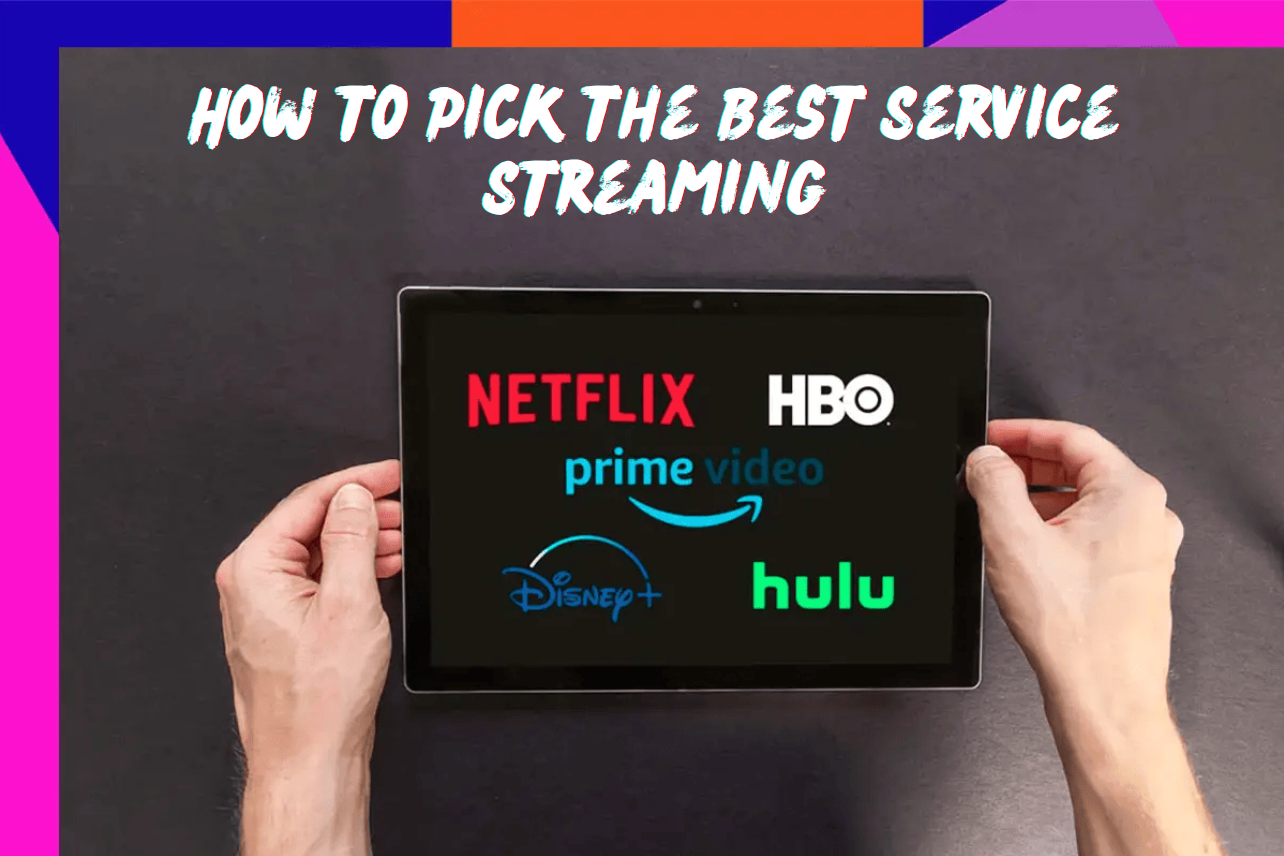10 Things To Keep In Mind While Choosing Internet Service Provider
These days, it's crucial to have a reliable internet connection. It's like having water or electricity; we need it for almost everything! We use the internet for work, school, watching TV shows, and talking to friends and family. So, picking the right internet company, or ISP, is a big deal. We want to ensure our internet always works well and only costs a little.
This blog is here to help you pick the best internet company. We will share some top tips to consider, like how fast you want your internet to be, how much you're willing to pay, and making sure your chosen company has good customer service. Whether it's your first time getting internet or you're considering switching to a different company, we've got you covered.
And that's where Trusted10.io comes in. We're like your internet helper, making things simple to understand. Our team looks at all the complicated stuff and turns it into easy tips. So, by reading this blog, you'll get all the help you need to pick the best internet company that fits your budget and how you like to use the internet. Let's make this internet choice easy and intelligent together!
Factor 1: Internet Speed
Your online activities are supported by the speed of your internet connection. Imagine trying to watch your favorite show, and it keeps buffering, or you're in an important video call, and it keeps freezing. That's frustrating, right? That's why internet speed matters. Fast internet speed means you can stream movies smoothly, download files quickly, enjoy video chats without interruption, and play online games without lag. It's vital if you work from home or have many people simultaneously using the internet in your house. The right speed makes everything online work better and faster.
Key Considerations
- Usage Needs: When deciding how fast your internet connection must be, think about your online habits.
- Number of Devices: More devices mean you need more speed to keep everything running smoothly.
- Symmetrical Speeds: If you often send files or video chat, look for plans with fast upload and download speeds.
- Data Limits: Go for plans with no data caps to avoid extra fees or slower speeds if you use the internet a lot.
- Type of Connection: Fiber-optic internet is super fast. Check if it's available where you live.
Pros and Cons
Pros:
- Smooth streaming and gaming.
- Supports lots of devices at once.
- You may use it to upload files or download them.
- Faster speeds can make work and school from home much more straightforward.
- Fiber-optic is super quick and reliable.
Cons:
- Faster internet can cost more.
- Not all areas have the fastest options.
- You might pay for speed you don't need.
- Some plans have data caps, which can limit your use.
- The Internet can slow down when lots of people are online.
Expert Tips
- Speed Test: Determine whether you need a faster option by checking your internet speed.
- Match Speed to Use: Pay for super-fast internet only if required. Think about what you do online.
- Symmetrical Speeds: If you share many files or make video calls, look for plans with fast upload speeds, too.
- Think Ahead: Choose a speed that will work for you in the future as you use the internet more.
- Shop Around: Look at different internet companies and types of internet to find the best speed where you live.
Factor 2: Reliability
When it comes to your internet, consistency is vital. Put yourself in the shoes of someone whose internet suddenly goes down just as they are about to finish a crucial online meeting or the most exciting part of a movie. That's where reliability comes in. A reliable internet connection means your online activities go smoothly without unexpected interruptions. Those whose jobs, education, or social lives are dependent on the internet will find this extremely important. With a dependable connection, you can be productive and enjoy your online time without the stress of constant disruptions.
Key Considerations
- Uptime Guarantees: Look for promises from the provider about how often their service will be up and running.
- Redundancy Measures: Good providers have backup plans to keep your internet working, even if something goes wrong.
- Customer Feedback: See what other people say about the provider's reliability to get a real-life picture.
- Service Agreements: Check if the provider makes any promises in writing about how reliable their service will be.
- Technology and Infrastructure: You may learn a lot about the provider's dependability from their technologies.
Pros and Cons
Pros:
- Steady internet means fewer interruptions in your online activities.
- A steady connection is what you need to be happy and productive.
- Backup systems help avoid outages, keeping you online more.
- Written promises from your provider give you peace of mind about your service.
- A dependable connection is crucial for essential tasks that need a steady internet.
Cons:
- Not all providers have the same quality of equipment or service, affecting reliability.
- Sometimes, things outside the provider's control can still cause outages.
- Providers without good backup plans might leave you without internet more often.
- If your internet is often unreliable, it can disrupt your work or fun online.
- Dealing with unreliable internet can be a big headache and slow you down.
Expert Tips
- Look for High Uptime: Choose providers known for keeping their internet service running smoothly most of the time.
- Backup Systems: Go with providers with robust plans to keep your service going, even when problems arise.
- Read Reviews: Checking what others say can give you a good idea of a provider's reliability.
- Know Your Service Agreement: Understanding what your provider promises about reliability can help you hold them accountable.
- Keep an Eye on Performance: Regularly check how your internet is doing so you can spot and fix any reliability issues early.

Factor 3: Cost
How much it costs is a big deal when picking an internet service. Maximizing value without sacrificing quality is the name of the game. You want fast and reliable internet that doesn't make your wallet cry. It's not just about the monthly bill; it's also about understanding all the extra costs and finding a deal that fits your budget. This balance between price and quality means you can enjoy excellent internet service without financial stress.
Key Considerations
- Compare Prices: Look at what different internet companies charge to find a deal that's kind to your wallet.
- Watch Out for Extra Fees: Some companies have hidden charges like renting equipment or setting up your service.
- Bundle Up: Sometimes, getting your internet, TV, and phone from the same company can save you money.
- Look for Deals: Look out for special prices for new customers or rewards for sticking with the company.
- Think Long-Term: Remember, some deals are just for a short time, and prices might increase later.
Pros and Cons
Pros:
- Plans that fit all budgets.
- With clear pricing, there will be no unpleasant shocks when the invoice arrives.
- Bundling services could give you more for less money.
- Special deals can make starting with a new service easier on your pocket.
- Rewards for loyal customers can add extra value.
Cons:
- Hidden fees can bump up the cost more than you expected.
- Low prices at the start might jump up later.
- Bundles might include stuff you don't need, costing you more.
- Cancelling early might come with a hefty fee.
- Affordable options might be complex to find where you live.
Expert Tips
- Do Your Homework: Look at different companies to find the best deal for your needs.
- Read the Fine Print: To avoid any unpleasant surprises, make sure you are aware of all the potential fees.
- Be Smart with Deals: Deals can be great, but know what you're signing up for, especially when the deal ends.
- Think About Bundling: If you need more than just the internet, bundling might save you money.
- Check Your Plan Regularly: Monitor your internet plan and costs to ensure.
Factor 4: Customer Service
Good customer service is like having a trustworthy friend you can call when your internet acts up. It's all about getting help when needed, whether it's a glitch in your connection, a billing question, or some advice on using your service better. When customer service is on point, it makes the whole internet experience smoother and less stressful. You want to know that if something goes wrong, there's someone ready to fix it quickly so you can get back to your online life without a hitch.
Key Considerations
- Check Reviews: Find out what past clients thought of the service by reading their reviews.
- Support Options: Make sure there are several ways to get help, like chat, email, or a phone call.
- Quick Help: Look for signs that the company responds fast when you have a problem.
- Updates from Provider: It's great when a company tells you about service work or outages ahead of time.
- Problem Solving: Find out if other customers say the company is good at fixing issues.
Pros and Cons
Pros:
- Excellent customer service means you're happier and more likely to stick with the service.
- Having different ways to get help makes it easier to solve problems.
- Fast answers suggest less waiting when you need something fixed.
- Getting updates about your service means fewer surprises.
- Good problem-solving makes for a better overall experience.
Cons:
- Lousy customer service can leave you feeling frustrated and stuck.
- If there are only a few ways to get help, it might be harder to get what you need.
- It can make problems even more annoying for a long time.
- Knowing about service issues ahead of time can make sure everything is clear.
- You might give up if the company doesn't solve problems well.
Expert Tips
- Go for Reputation: Choose a provider known for caring for their customers.
- Look for Options: More ways to get help means it's easier to find a solution when you need it.
- Test the Waters: Find out how quick and helpful customer support is by asking them some questions.
- Stay in the Loop: Follow your provider's updates to know what's happening with your service.
- Speak Up: If you have an issue, tell your provider immediately for a quicker fix.
Factor 5: Data Caps and Throttling
Data caps and throttling can change how you use the internet. A data cap restricts the amount of data that may be used each month. Your internet service provider (ISP) may use throttling, a process that reduces your internet speed, if you go above this limit. This can be a big problem if you love streaming movies, playing online games, or if lots of people use the internet in your home. Knowing about these caps and what happens if you go over them can help you avoid slow internet or surprise charges on your bill.
Key Considerations
- Check for Caps and Throttling: Find out if your ISP limits how much data you can use and if they slow down your speed.
- Overage Consequences: Know what happens if you use too much data. Is there an increase in price or a slowdown in internet speed?
- Look for Better Options: Some ISPs don't have these limits, so consider switching if you don't want to worry about caps or throttling.
Pros and Cons
Pros:
- You can avoid extra charges by staying within your data limit.
- Your internet connection can be more stable if it's not constantly throttled.
- If your internet service provider doesn't impose such restrictions, you may surf the web at your leisure without any slowdown.
Cons:
- If you exceed your data limit, you may be subject to additional charges.
- Your internet could slow down if your ISP throttles your speed, making it hard to do things online.
- Having a data cap can stop you from using the internet freely, especially for big downloads or streaming.
Expert Tips
- Read the Fine Print: Ensure you understand your ISP's rules on data caps and throttling before signing up.
- Watch Your Data: Keep an eye on how much data you use to avoid exceeding your limit.
- Choose Wisely: If you want to avoid dealing with data caps or throttling, look for an ISP that doesn't have these restrictions.
Factor 6: Contracts and Early Termination Fees
When you sign up for internet service, you might have to sign a contract, like making a promise. This contract says how long you'll use the service and what happens if you decide to stop early. There may be an early termination charge if you decide to cancel before the contract finishes. Understanding these details is super important because they affect how free you are to change services and how much they might cost you. Contracts and payments can be a big deal, especially if your life changes, like if you move or find a better deal elsewhere.
Key Considerations
- Read the Contract: Know how long the contract lasts and what you agree to.
- Early Termination Fees: Find out how much it costs to cancel before the contract ends.
- Think About the Future: Consider if a long contract makes sense, like if you might move.
- No-Contract Options: Look for plans that don't require a long-term commitment if you prefer more freedom.
- Auto-Renewal: Understand if your contract automatically renews and how to manage it.
Pros and Cons
Pros:
- Contracts can make pricing and services clear from the start.
- Long-term deals might come with discounts or special offers.
- Sticking with one provider might mean fewer changes and more stability.
- Auto-renewal means you won't accidentally lose service.
- Being loyal to one provider could lead to rewards or bonuses.
Cons:
- A long contract might limit your options and keep you from upgrading or changing services.
- Cancelling early can be expensive due to termination fees.
- Auto-renewals might lock you in without a chance to reassess your needs.
- If there are few no-contract options, you might feel stuck.
- Switching providers often to avoid contracts can add up costs and hassle.
Expert Tips
- Understand Your Contract: Take the time to understand what you're signing up for.
- Talk About Terms: Be bold and discuss contract terms and termination fees to find what's best for you.
- Keep Track: Mark down important dates, like when your contract ends, to avoid surprises.
- Flexibility First: If changing plans easily is vital, consider a no-contract plan.
- Ask Questions: If anything in the contract needs to be clarified, ask the provider or seek advice to ensure you know what you agree to.

Factor 7: Coverage
When choosing an internet service, knowing where it works is vital. Coverage means where the service is available. Like some phone companies have better signals in certain areas, internet services work best in specific places. If the service is available where you live or the connection could be more assertive, there might be better choices than this one. Also, understanding how subscriptions renew and how you're billed helps manage your internet without surprises, like unexpected charges.
Key Considerations
- Service Area: Ensure the internet service is available in your area and the connection is strong.
- Auto-Renewal: Know how the service renews—does it automatically charge you each month or year?
- Price Changes: Find out if your bill could go up and what might cause a price change.
- Cancellation Policy: Understand how and when to cancel the service to avoid extra fees.
- Managing Your Service: Learn how to pause or change your service, like if you're going on vacation.
Pros and Cons
Pros:
- Knowing the service area ensures you get a reliable connection.
- Auto-renewal means one less thing to worry about; your service continues without interruption.
- Flexible pricing can adapt to your needs or budget changes over time.
Cons:
- You might need a better connection if the service covers your area well.
- If you fail to cancel a service that you no longer need, auto-renewal might result in costs.
- Prices might increase, making budgeting for your internet service harder.
Expert Tips
- Check Coverage: Before signing up, use the provider's website or contact them to make sure they offer good service where you live.
- Understand Your Subscription: Keep track of when your service renews and how much you pay.
- Stay on Top of Changes: Keep an eye on emails or notifications from your provider about changes in service or pricing.
- Know How to Pause or Cancel: Learn the steps to change or stop your service if your needs change.
- Keep Payment Info Updated: Make sure your payment method is current to avoid service interruptions.
Factor 8: Types of Connection
The type of internet connection you choose is like picking the right shoes for a sport; you need the right fit to perform your best. Whether you're into gaming, streaming movies, or browsing, the connection type affects everything—speed, reliability, and even where you can use it. Each option has pros and cons, from old-school dial-up to modern fiber-optic lines. You may avoid overspending on internet service by selecting the plan that best suits your needs in terms of speed and quality.
Key Considerations
- What's Available: Check which internet connections you can get in your area.
- Speed and Latency: Look at how fast each connection is and how quickly it responds, which is especially important for gamers and streamers.
- Cost: Compare the prices to find something that fits your budget.
- Device Compatibility: Make sure the connection type works well with your gadgets.
- Your Internet Activities: Consider what you do online to pick a connection that can handle it, like a fast download speed for movie lovers.
Pros and Cons
Pros:
- Different options mean there's something for everyone, whether you need primary access or high-speed internet.
- Fast connections make online activities smoother and more enjoyable.
- Wireless options give you internet on the go.
Cons:
- Not all types are available everywhere, especially in rural areas.
- Faster internet usually costs more.
- Some connections, like satellites, can be less reliable in bad weather.
Expert Tips
- Talk to Providers: ISPs can tell you what's available in your area and suggest options based on your needs.
- Match Your Usage: Pick a connection based on what you do online. If you're a heavy user, look for faster speeds.
- Test Before You Commit: Try out the connection's speed and quality to ensure it meets your expectations.
- Keep an Eye on Performance: Even after you've chosen, regularly check your internet speed to ensure you're getting what you pay for.
Factor 9: Reliability
Reliability in internet services means having a connection you can always count on. Whether working from home, chatting with friends, streaming movies, or playing games online, you need an internet that's always there when you need it. If your internet connection is stable, it won't suddenly go down or disappear while you're trying to perform anything critical online. It's about ensuring your online experience is smooth and uninterrupted so you can do what you need without hassle.
Key Considerations
- Definition of Reliability: It's all about how likely your internet is to keep working perfectly over time.
- What Affects Reliability: How well the network is built, how it's taken care of, and how stable it is can make a big difference.
- Why It Matters: Knowing how reliable your internet service is can help you determine if it will be good enough for what you need.
- Keeping It Reliable: There are unique ways to ensure the internet service stays dependable, so it's always ready when needed.
- The Importance of Trust: Having an internet service you can rely on means you don't have to worry about being let down.
Pros and Cons
Pros:
- You get a steady and dependable internet connection that won't disappoint you.
- A reliable internet means fewer interruptions, so you can keep doing what you love online.
- Knowing you have a solid internet connection builds trust in your service provider.
Cons:
- An unreliable internet can be frustrating and get in the way of your work or fun.
- If your internet is often down, it can mess up your plans and slow you down.
- Not being able to rely on your internet means you might be unable to get to the online stuff you need when needed.
Expert Tips
- Keep an Eye on It: Regularly check how your internet is doing so you can spot any problems early.
- Speak Up: Get in touch with your service provider if you're experiencing issues connecting to the internet.
- Have a Plan B: Think about a backup way to get online for vital stuff.
- Know What's Happening: Stay updated on any work your internet provider does that might affect your service.
- Choose Wisely: When picking a provider, look at what other people say about how reliable their service is.
Factor 10: Bandwidth
Think of bandwidth as a big road for your internet. The bigger the road, the more cars (or data) can travel simultaneously. This means watching videos, playing games, and browsing the web without waiting to load. More bandwidth means everything you do online works better and faster, so you can have fun and get things done without any annoying delays.
Key Considerations
- Speed Talk: Bandwidth is measured in "bits per second" - more significant numbers mean more speed.
- Add It Up: To know how big your "internet road" is, add all the bits from every part of your network.
- Watching Traffic: To determine your bandwidth requirements, consider your data use.
- Sharing is Caring: Make sure everyone gets a fair share of the internet speed so no one gets stuck waiting.
- Helpful Tools: Special tools help make specific important stuff get the fast lane on the internet road.
Pros and Cons
Pros:
- Find out how fast your internet can go with this helpful tool.
- Makes sure videos and games work smoothly.
- Let everyone get their fair share of the internet.
- It keeps your online activities running nicely.
Cons:
- Figuring out how much bandwidth you need can take time and effort.
- Sometimes, when everyone's online, things slow down.
- You need to monitor your capacity to make sure it's enough for what you want to do.
Expert Tips
- Keep an Eye Out: Check how your internet is doing now and then to catch any slow-downs early.
- Manage the Flow: Use tools to help control how your internet speed is used so important stuff stays fast.
- Set It and Forget It: Look into programs that can handle your speed sharing.
- Join Forces: Combine different internet sources for an extra speed boost.
- Be Ready to Change: As your internet needs grow, be prepared to adjust your bandwidth so you're always covered.
Conclusion
Picking the right internet company for your business is super important. It's similar like picking the right gas for your vehicle. The right choice helps everything run smoothly - from talking to clients and sending emails to growing your business. A good internet link keeps everything running smoothly, which makes your job easier.
We talked about a bunch of things to think about when choosing your internet service. You need to look at how fast the internet is, how often it works without problems, how much it costs, and if the company helps you quickly when there's an issue. All these parts are essential to ensure the internet service suits your business needs.
Over at Trusted10.io, we want to help you make the best choice. Every business is different, so there's only one best answer for some. We suggest you use the tips from this article to look around and compare other internet companies where you are. Think about your business needs from the internet and pick the best service. With some homework and intelligent thinking, you'll find the perfect internet service to help your business do great things.










